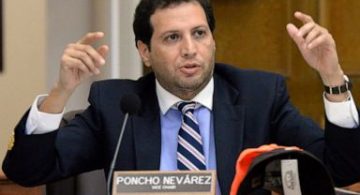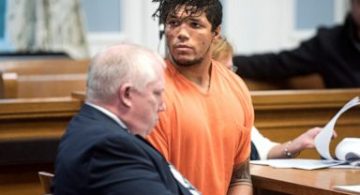A former Roman Catholic deacon barred from the ministry in New Orleans because of sexual abuse allegations maintained access to schoolchildren and held leadership roles as recently as last year in the Knights of Columbus, despite promising three decades ago to avoid young boys “for the good of the Church,” according to records obtained by The Associated Press.
George Brignac, 84, was defrocked as a deacon in 1988 after a 7-year-old boy accused him of fondling him at a Christmas party. That allegation came on top of previous claims that he had abused other boys, including one that led to his acquittal in 1978 on three counts of indecent behavior with a juvenile. The Archdiocese of New Orleans settled several lawsuits against Brignac, including one for more than $500,000.
Still, he remained involved in the church as a lay minister who read the gospel during Mass until last year, when news reports about his past prompted officials to remove him.
At the time, Archbishop Gregory Aymond assured parishioners in a letter that Brignac “had no ongoing, unsupervised contact with minors in a parish or school setting.”
But more than 2,500 archdiocese records obtained by AP show Brignac had interacted with children through the Knights of Columbus, where he held positions usually reserved for priests within the fraternity, including chaplain and a spiritual adviser role known as “Faithful Friar.”
His activities with the Knights included giving an educational lecture to children and selecting some of their costumes during a Feast of Fatima celebration in 2017 at St. Mary Magdalen Parish, in the New Orleans suburb Metairie, according to emails between parochial school officials and a Knights of Columbus official.
The emails, which were among records released in response to a civil subpoena, show that Brignac served in the Knights of Columbus for 20 years beginning in 1998— a decade after his removal from the ministry. The organization did not suspend him until Wendy Vitter, a former attorney for the Archdiocese of New Orleans, called the group last summer after the Brignac case made headlines.
“Some 30 years after he was supposedly defrocked and removed from the active ministry, this deacon was allowed to be around children and even to go as far as picking out the children’s clothing at the Feast of Fatima celebration at St. Mary Magdalen Parish,” said John H. Denenea Jr., an attorney who represents one of Brignac’s alleged victims. Brignac’s continued exposure to children, he added, “should sound a terrifying alarm throughout this community.”
The Archdiocese of New Orleans declined to comment, citing the lawsuits it faces over the sexual assault claims against Brignac.
The Knights of Columbus said it was not aware of the allegations against Brignac when he joined the organization and does not conduct background checks on applicants.
“When the Knights learned of the archdiocese’s decision to remove him from diaconate and lay ministries, we revoked his membership immediately,” the fraternity said in a statement.
In a brief interview at his home, Brignac acknowledged participating in the Knights of Columbus but insisted he had not dealt with children.
“There’s more trash being published,” he said, referring other questions to his attorney. “This has been a terrible 15 months.”
Brignac last year told The New Orleans Advocate he would “not have gone into teaching if I were not attracted to children” but insisted he never touched a child “for immoral purposes.”
The records obtained by The AP show that between 2007 and 2010, Brignac completed training the archdiocese requires of volunteers who come into contact with children — a screening specifically intended to prevent sexual abuse.
During that training, Brignac did not hide his past. He indicated on forms that he had a history of sexual abuse claims against him.
But the archdiocese appears to have taken no action prevent his involvement in the Knights of Columbus.
The revelations of Brignac’s continued exposure to children come amid a new reckoning within the Catholic Church over how it handles clergy accused of sexual abuse.
Church officials received molestation claims against Brignac as early as 1977, the year after he was ordained a deacon, a role that allowed him to preach sermons, baptize and distribute Holy Communion, among other duties.
Even before he was ordained, there were red flags. The records obtained by AP also show that two of three deacons who evaluated Brignac wrote that he appeared “defensive” in his answers.
Claims that Brignac abused boys at local schools and churches where he worked prompted at least three police investigations.
In 1988, following his removal from the ministry, Brignac wrote a letter to the archdiocese seeking to be reinstated as a deacon and a high school teacher.
In the letter to Archbishop Philip Hannan, who is now deceased, he noted that his removal from the school had been explained away at the time as “a temporary leave of absence due to health caused by the stress of the loss of my brother.”
He acknowledged in the same letter that “for the good of the Church, and for my own personal good, I must not be allowed to be put in a position of authority or supervision of or work with young boys in the future,” but also said the charges against him were unfair and that he should be allowed to teach again.
An independent review board at the archdiocese deemed at least one of the sexual abuse claims against Brignac to be “credible” in 2002, the records show. Brignac’s was among more than 50 names the Archdiocese of New Orleans included in a November list of clergy removed from ministry because of what Aymond termed “credible accusations” of sexual abuse of minors.
——
Jim Mustian reported from New York.





